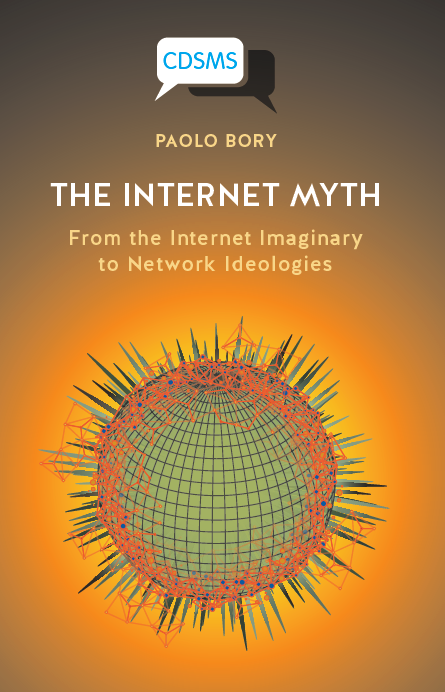UWP‘s latest title The Internet Myth by Paolo Bory has just been released, available in print and open access. Below we have extracted the concluding paragraph from an enlightening Preface by Gabriele Balbi explaining why research like Bory’s is so important in a contemporary setting in understanding digital culture and what the internet has come to mean. And how.
‘Internet imaginaries, ideologies, narratives, and myths (all terms used and explained by Paolo in his book) take time to be built, spread, accepted, and maybe then killed by society. They all have effects in the long term, they need long periods to be metabolized, and their effects are persistent even if often unnoticed. This book uses history, one of the few disciplines able to grasp long-term changes and continuities, in order to understand crucial issues in the relationships between contemporary societies and the Internet. It is an attempt to retrace how the digital culture today is based on forgotten ideas, to revitalize the powerful and persistent narratives behind failed projects, and to understand how the Internet was built with a mix of mythologies, human needs and limits. Every technology of communication is a byproduct of the society that created it. And in every society, imaginaries, ideologies, narratives, and myths play a crucial role in establishing a taken-for-granted and yet powerful system of looking at the world. This book ultimately aims to study the habitus where the Internet was created and, in the end, to better understand the ways in which contemporary societies decide to imagine, show, and limit themselves‘
The Internet Myth is the second of our Critical and Digital Social Media Studies series titles looking at digital and internet history in 2020, the other Incorporating the Digital Commons by Benjamine Birkinbine. Robert Hassan explored the conceptual shift to the digital too since 1989, in The Condition of Digitality (also 2020).

